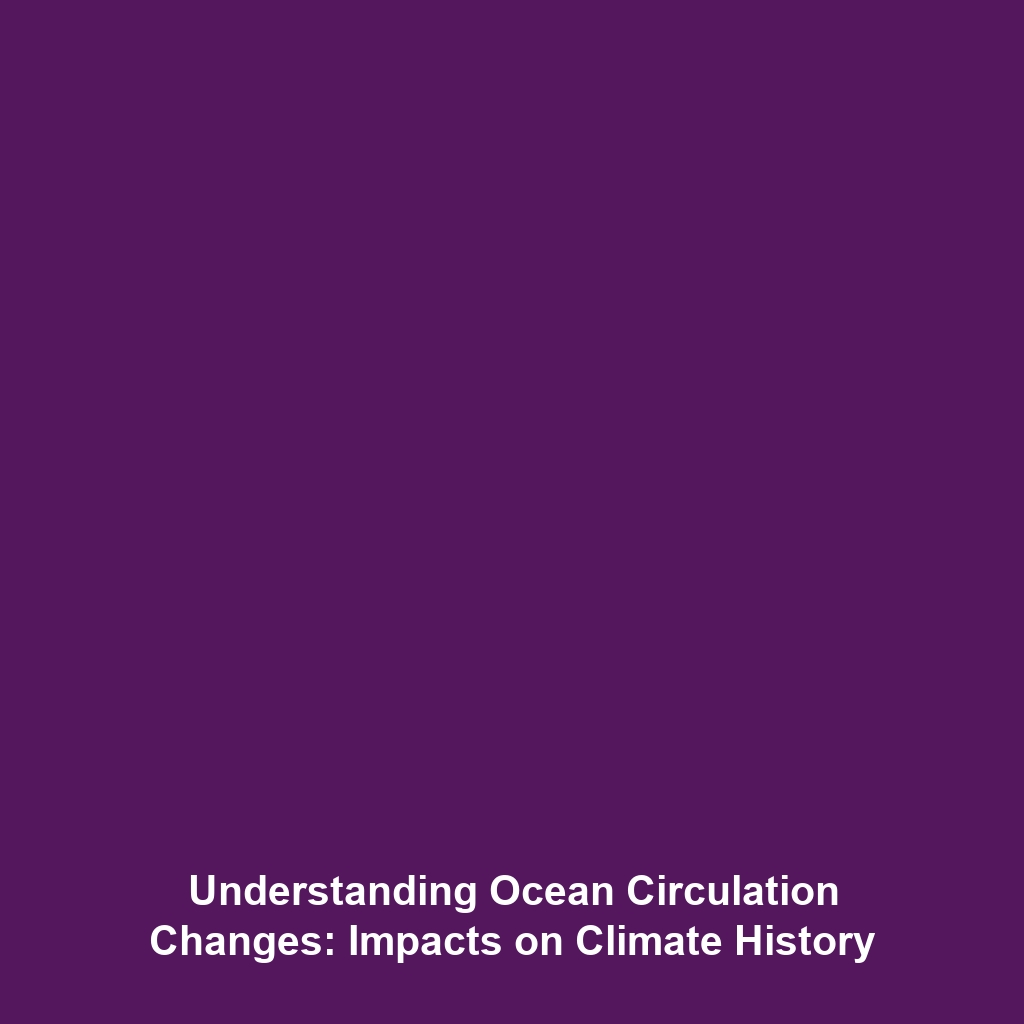Ocean Circulation Changes and Their Significance in Climate History
Introduction
Ocean circulation changes play a crucial role in understanding climate history, impacting weather patterns and global climate systems. These changes encompass alterations in ocean currents, temperature stratification, and salinity levels, which are vital for regulating Earth’s climate. Investigating ocean circulation is essential for predicting future climate shifts, making it a focal point in climate science. As we delve deeper into the significance of ocean circulation changes within climate history, we uncover their profound influence on past, present, and future climatic conditions.
Key Concepts
Understanding Ocean Circulation
Ocean circulation refers to the large-scale movement of water within the world’s oceans, determined by a variety of factors including density differences caused by temperature and salinity. These movements are pivotal in the global climate system, influencing weather patterns, marine ecosystems, and the carbon cycle.
Connection to Climate History
Changes in ocean circulation are intricately linked to major climatic events throughout Earth’s history, including ice ages and warm periods. Investigating how these changes interact with atmospheric conditions provides insights into historical climate shifts. Furthermore, understanding these principles helps scientists project future climate scenarios.
Applications and Real-World Uses
Understanding how ocean circulation changes are applied in the field of climate history can lead to various important applications:
- Climate Modeling: Scientists utilize ocean circulation data to enhance climate models, improving the accuracy of climate predictions.
- Marine Resource Management: Knowledge of ocean circulation patterns assists in sustainable fisheries management and preservation of marine biodiversity.
- Weather Forecasting: Real-time analysis of ocean currents contributes to more reliable weather forecasts and disaster management.
Current Challenges
Despite advancements in studying ocean circulation changes, several challenges persist in the realm of climate history, including:
- Data Gaps: Incomplete historical data limits the understanding of past ocean circulation changes.
- Complex Interactions: The interconnectedness of oceanic and atmospheric systems complicates analyses and predictions.
- Technical Limitations: Current modeling technologies may not fully capture the dynamic nature of oceanic processes.
Future Research and Innovations
Future research will likely focus on several innovative areas related to ocean circulation changes:
- Advanced Simulation Technologies: New computational models will allow for more precise projections of ocean currents and their climate impact.
- Increased Monitoring: Deployment of autonomous underwater vehicles and satellite technology will improve data collection.
- Interdisciplinary Studies: Collaborative research that bridges oceanography, climatology, and ecology to develop holistic climate strategies.
Conclusion
Ocean circulation changes are integral to understanding climate history and the overarching climate system. As scientists continue to decode these complex processes, it is essential to leverage this knowledge for climate action and policy-making. For further reading, explore our sections on Marine Resource Management and Climate Modeling Techniques.

Leave a Reply